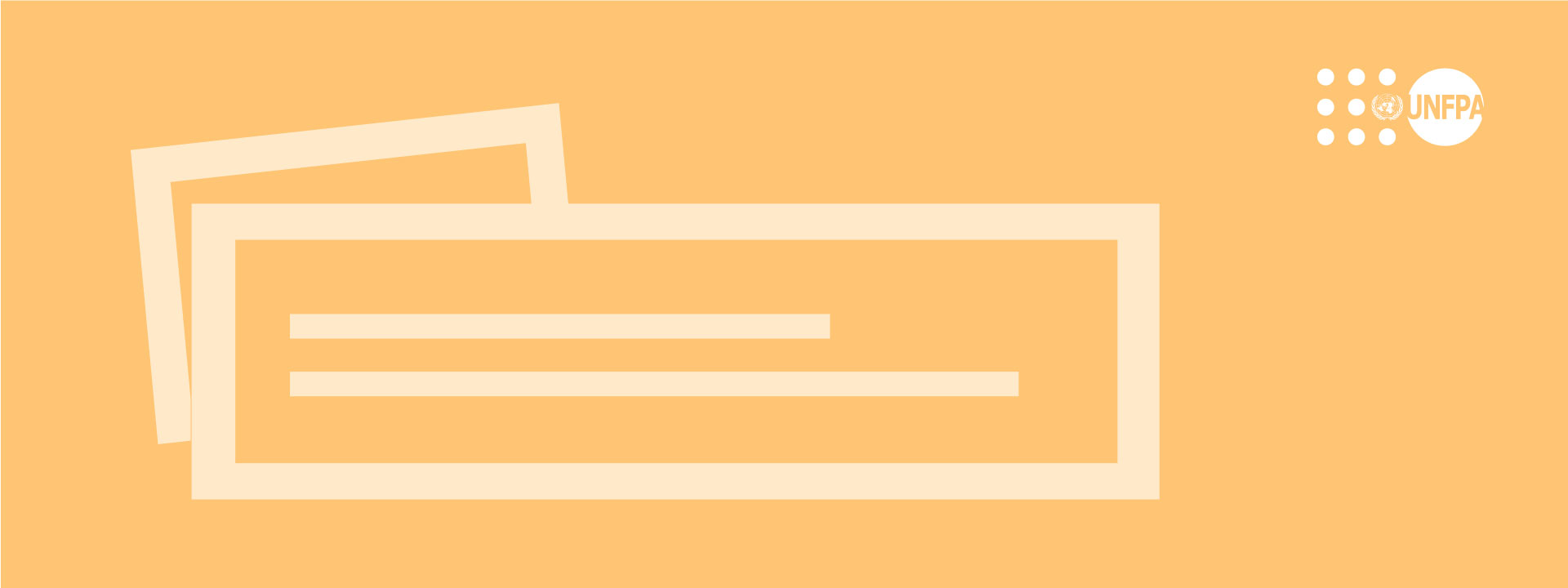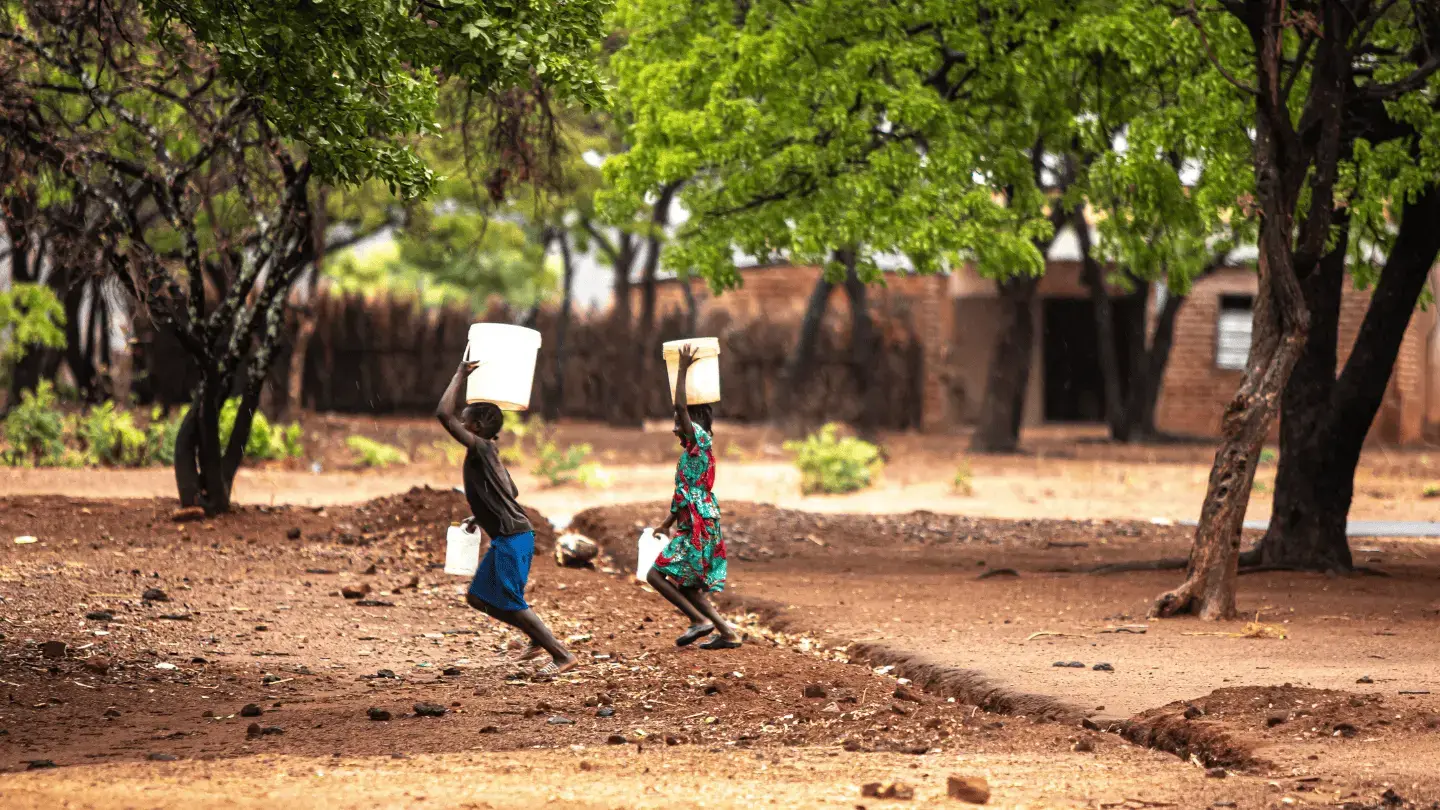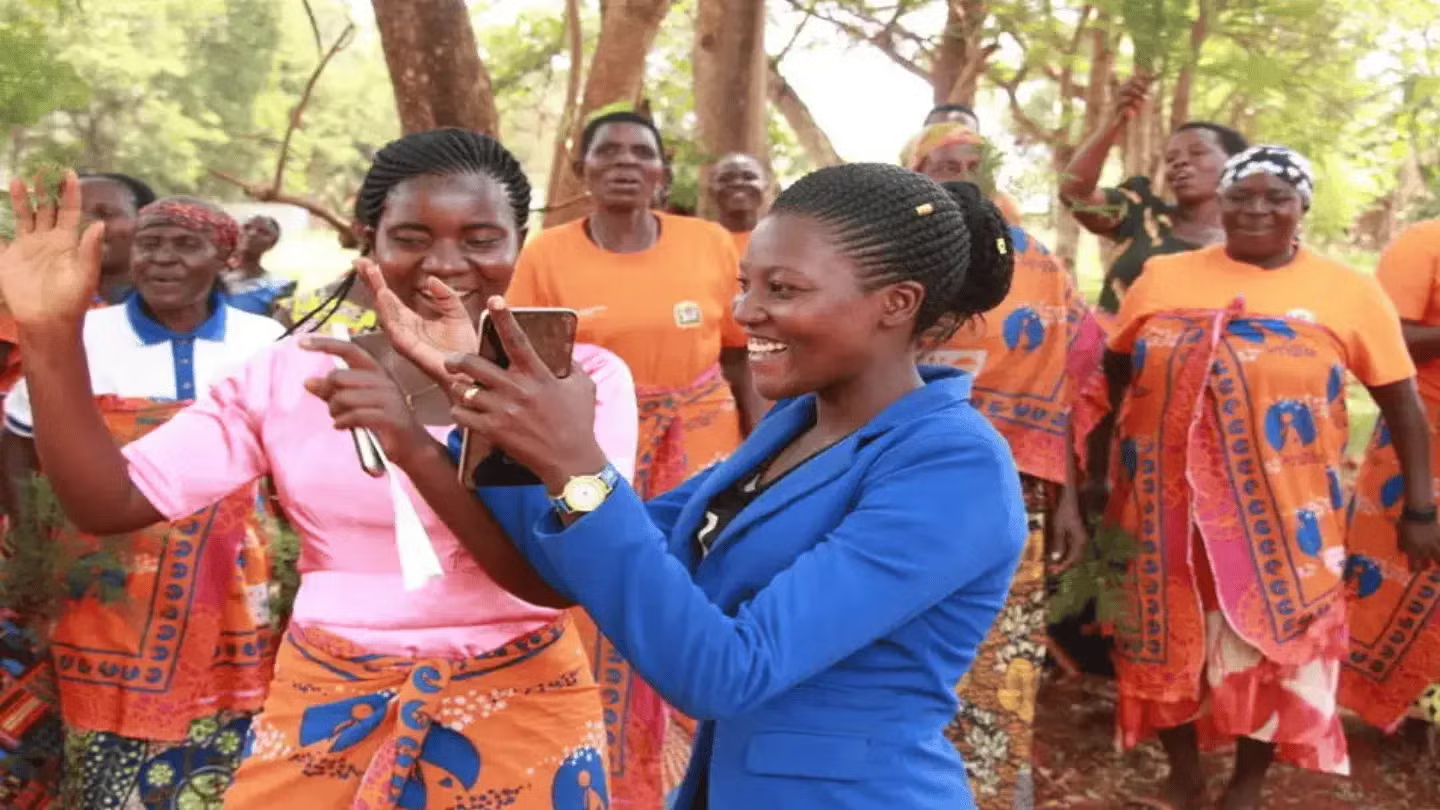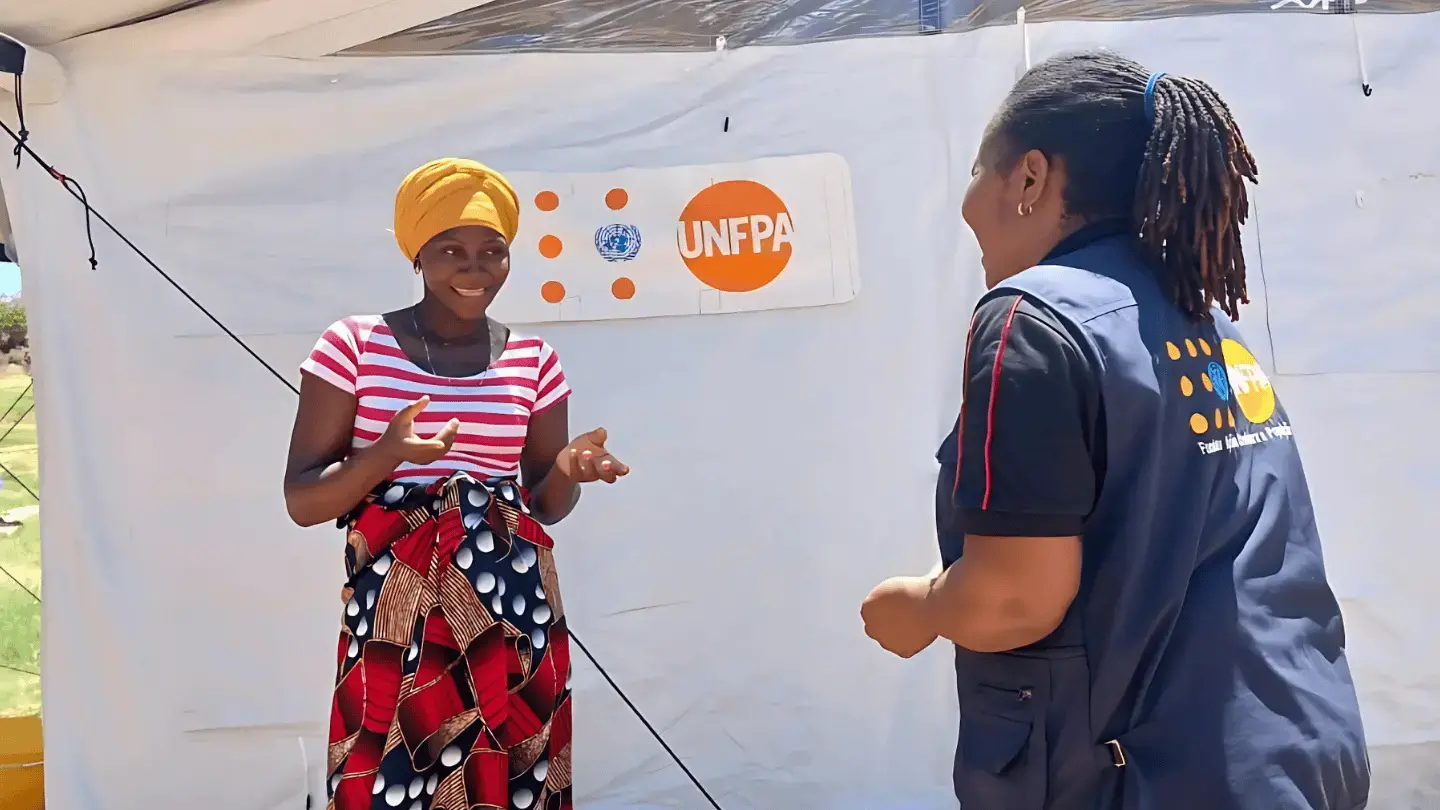Regional SYP and Youth Knowledge Products: Publications
SYP reports
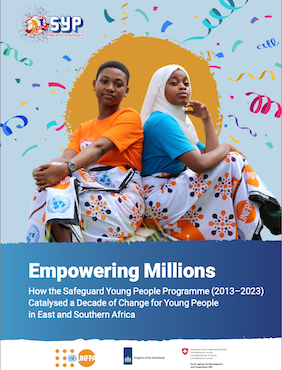
|
Empowering Millions: How the Safeguard Young People Programme (2013-2023) Catalysed a Decade of Change for Young People in ESA This brochure celebrates SYP’s ten years of significant achievements for adolescents and young people in East and Southern Africa. It includes supporting 17 million learners to access inclusive and quality comprehensive sexuality education in school; and reaching 14 million young people with sexual and reproductive health and HIV services. |
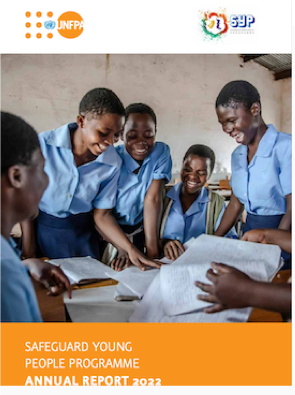
|
Safeguard Young People Programme Annual Report 2022 |
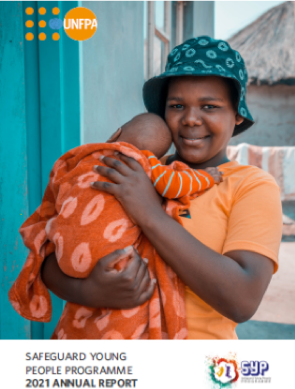
|
Safeguard Young People Programme 2021 Annual Report The regional Safeguard Young People programme empowers adolescents and young people aged 10 to 24 years to protect themselves from sexually transmitted infections including HIV, early and unintended pregnancy, unsafe abortion, early marriage, gender-based violence and other harmful cultural practices. |
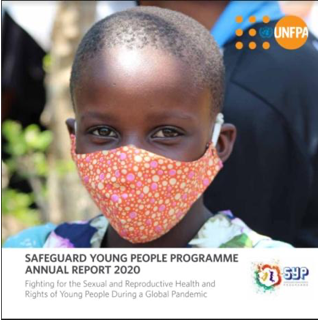
|
Safeguard Young People Programme Annual Report 2020 When it became clear that the COVID-19 pandemic was set to change life as we know it, the SYP regional team employed several different strategies to ensure quality action at regional and country levels. |
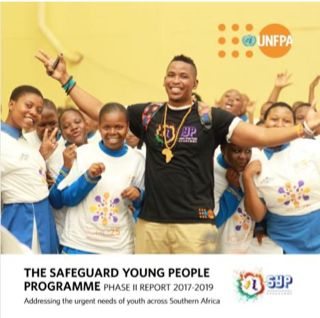
|
The Safeguard Young People Programme Phase II Report 2017-2019 SYP has been implemented by UNFPA and its regional and national partners since November 2013 in eight Southern African countries. Since then UNFPA successfully achieved a number of country and regional results in two Phases, which are detailed in this report. |
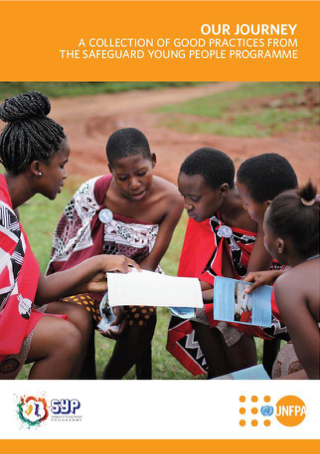
|
Our Journey These Safeguard Young People best practices have been implemented for periods varying between three and six years. With a clear description of strategies selected, lessons learned, what worked and what didn’t work, the step-by-step implementation processes documented here allow these best practices to be scaled up in different settings. |
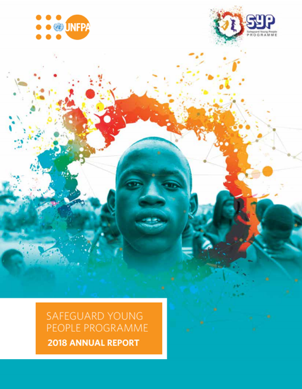
|
Safeguard Young People Programme Annual Report 2018 The year 2018 marked the fifth year of the Safeguard Young People (SYP) Programme, it was also the second year of its Phase II, 2017-2019. SYP is UNFPA East and Southern Africa youth flagship programme, supported by the Swiss Agency for Development and Cooperation (SDC) and other development partners according to the different countries of implementation. |
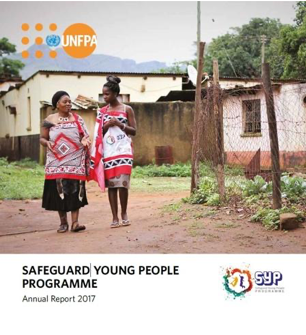
|
Safeguard Young People Programme Annual Report 2017 The year 2017 brought renewed energy to young people’s sexual and reproductive health as UNFPA embarked on Phase 2 of one of its flagship programmes, Safeguard Young People. SYP’s holistic approach is unique in joining the dots to address the SRHR needs of young people. |
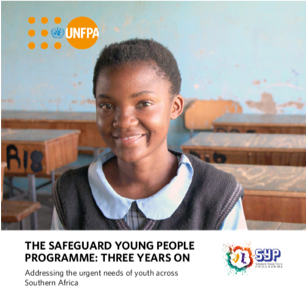
|
The Safeguard Young People Programme: Three years on UNFPA’s flagship programme, Safeguard Young People (SYP), responds to the urgent needs of millions of young people, charting a new way forward for Southern Africa. At the heart of the programme is the belief that young people need to be supported holistically in their own diverse and often complex environments so they can truly realize their full potential. |
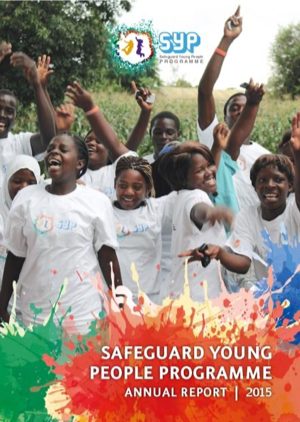
|
The Safeguard Young People Programme Annual Report (Phase 1) Since launching in 2013, UNFPA's Safeguard Young People Programme has achieved significant results. This report reflects on the significant accomplishments made from the programme as well as best practices and lessons learned that is crucial for the continued success of the programme moving forward. |
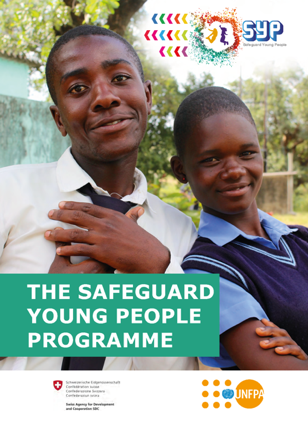
|
The Safeguard Young People Programme Brochure |
Policy and advocacy
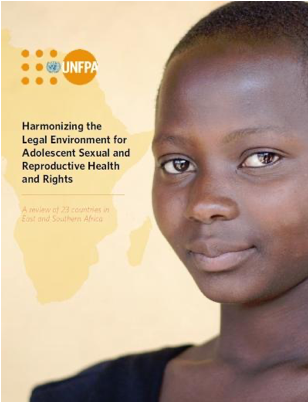
|
Harmonizing the Legal Environment for Adolescent Sexual and Reproductive Health and Rights This study reviews the laws, policies and related frameworks in 23 countries in East and Southern Africa that create either impediments to, or an enabling environment for, adolescent sexual and reproductive health and reproductive rights. |
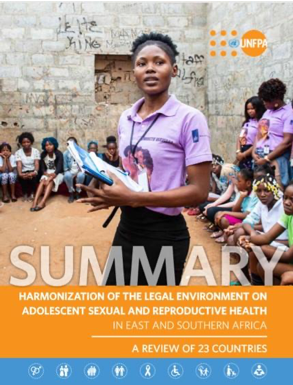
|
Harmonization of the Legal Environment on Adolescent Sexual and Reproductive Health in East and Southern Africa: Summary In 2015, UNFPA ESARO commissioned a study on the harmonization of the legal environment on adolescents’ sexual and reproductive health and rights (ASRHR). The study assessed the laws and policies that affect ASRHR in 23 East and Southern African countries, and was updated in 2019. |
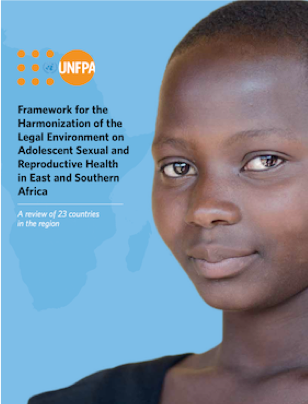
|
Framework for the Harmonization of the Legal Environment on Adolescent Sexual and Reproductive Health in East and Southern Africa This framework is designed to provide legal guidance to states in the harmonizing of policies and laws relating to adolescent sexual and reproductive health and rights in East and Southern Africa, and in aligning them with international and regional commitments. |
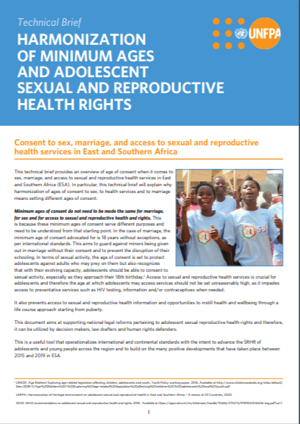
|
Technical Brief: Harmonization of Minimum Ages and Adolescent Sexual and Reproductive Health Rights This technical brief provides an overview of the age of consent when it comes to sex, marriage and access to sexual and reproductive health services in East and Southern Africa. In particular, the brief explains why the harmonization of ages of consent to sex, health services and marriage requires setting different ages for consent. |
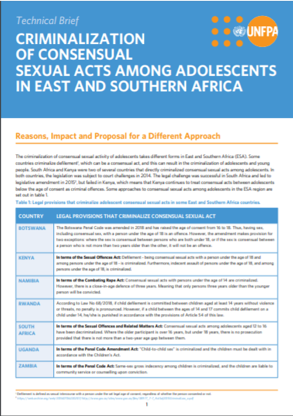
|
Criminalization of Consensual Sexual Acts Among Adolescents in East and Southern Africa |
Menstrual health
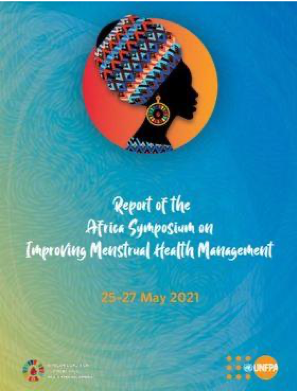
|
Report of the Africa Symposium on Improving Menstrual Health Management The African Coalition for Menstrual Health Management and UNFPA East and Southern Africa Regional Office, in tandem with other partners, convened the second African Symposium on Menstrual Health, from 25-27 May 2021. |
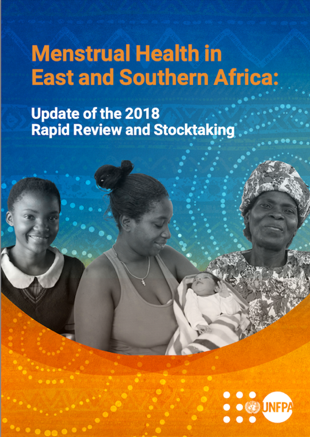
|
Menstrual Health in East and Southern Africa: Update of the 2018 Rapid Review and Stocktaking This rapid review was commissioned to take stock and document progress made since the 2018 East and Southern Africa Menstrual Health Management Symposium with the additional purpose of assessing and documenting the impact of strengthened advocacy through the African Coalition for Menstrual Health. |

|
This brief provides guidance on how to strengthen and operationalize the integration of menstrual health in sexual and reproductive health and rights policies and programmes at global, regional and national levels. |

|
First East and Southern Africa Regional Symposium on Improving Menstrual Health Management for Adolescent Girls and Women UNFPA and the Republic of South Africa co-hosted the first East and Southern African Symposium on Menstrual Health Management from 28 to 29 May 2018 in Johannesburg, South Africa. This historic meeting of committed professionals was an important step towards consolidating support for strengthening MHM in the region. |
Comprehensive sexuality education

|
Resilient Futures: Young People, the Climate Crisis, and Sexual and Reproductive Health and Rights This manual supports workshop facilitators to explain climate change and how it links to gender and sexual and reproductive health and rights. The workshop encourages young people to think about how their health and well-being are connected to the environment. |

|
Regional Comprehensive Sexuality Education Resource Package for Out-of-School Young People This package was developed according to international standards as a comprehensive set of teaching and learning materials for flexible use in settings outside the formal classrooms of the education sector. Several countries of East and Southern Africa have adapted this regional set of materials for nationally endorsed implementation. |
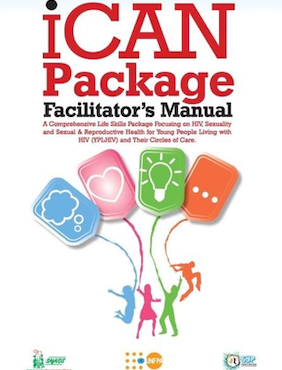
|
iCAN Package: Facilitator's Manual and Workbook The iCAN Facilitator’s Guide on Sexual and Reproductive Health for Young People Living with HIV and Their Circles of Care aims to help address the challenges facing adolescents and young people living within the East and Southern Africa region. |
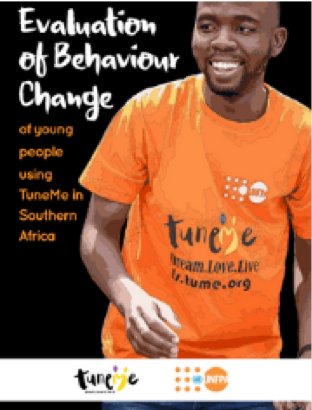
|
Evaluation of Behaviour Change of Young People using TuneMe in Southern Africa The objective of the evaluation was to understand the users, understand the progress made by individual users towards behaviour change, obtain client feedback/satisfaction, and obtain insights on implementation of the platform. |
Climate change
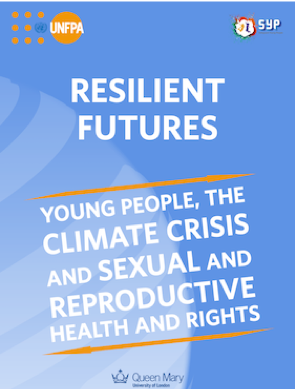
|
Resilient Futures: Young People, the Climate Crisis, and Sexual and Reproductive Health and Rights This guide helps the workshop facilitator explain climate change and how it links to gender and sexual and reproductive health and rights. The workshop encourages young people to think about the natural world and how their health and well-being are connected to the environment around them. |
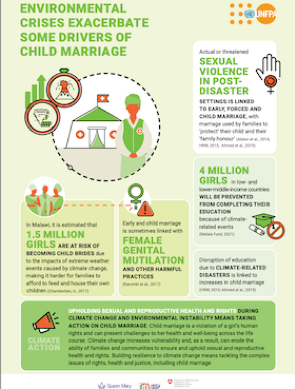
|
Environmental Crises Exacerbate Some Drivers of Child Marriage This infographic explains why upholding sexual and reproductive health and rights during environmental instability caused by climate change means taking action on child marriage. |
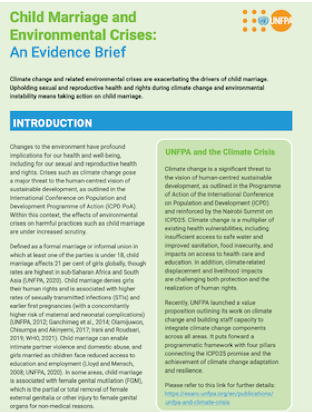
|
Child Marriage and Environmental Crises: An Evidence Brief Child marriage is a violation of a girl’s human rights and can present challenges for her health and well-being across the life course. Climate change increases vulnerability and, as a result, can erode the ability of families and communities to ensure and uphold sexual and reproductive health and rights. |
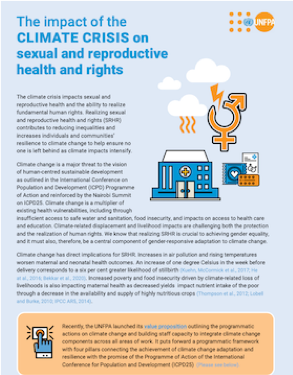
|
The Impact of the Climate Crisis on Sexual and Reproductive Health and Rights. Advocacy Brief Realizing sexual and reproductive health and rights contributes to reducing inequalities and increases individuals and communities’ resilience to climate change to help ensure no one is left behind as climate impacts intensify. |
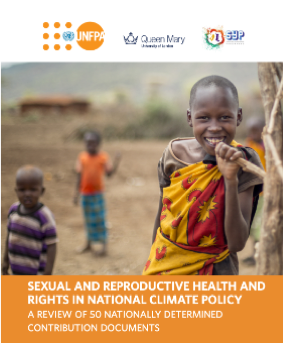
|
Sexual and Reproductive Health and Rights in National Climate Policy. A Review of 50 Nationally Determined Contribution Documents National climate policies play a key role in determining responses to climate change, including plans to build adaptive capacity and resilience. An evaluation of national climate policies with a specific focus on health can provide important information on gaps and areas for improvement. |

|
Infographic: The Negative Impact of Climate Change on Maternal Health This infographic looks at how climate change directly and indirectly impacts maternal health, making pregnancy less safe and worsening neonatal health outcomes. |

|
Infographic: Bodily Autonomy and Access to Family Planning are Essential for Responding to Climate Change |
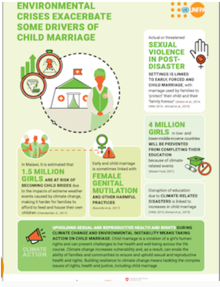
|
Infographic: Environmental Crises Exacerbate Some Drivers of Child Marriage |
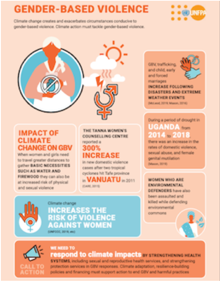
|
Infographic: Climate Change and Gender-Based Violence Climate change creates and exacerbates circumstances conducive to gender-based violence. This infographic draws the links and explains why climate action must tackle gender-based violence. |
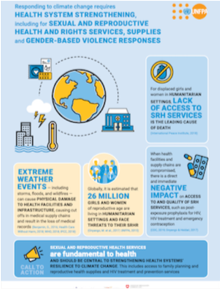
|
Infographic: Responding to Climate Change Requires Health Systems Strengthening This infographic looks at why responses to climate change must focus on health systems strengthening, including sexual and reproductive health services, supplies and gender-based violence services and response. |
Economic empowerment
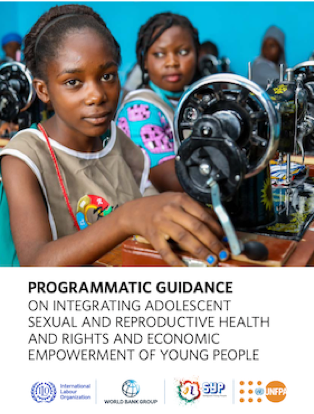
|
Programmatic Guidance on Integrating Adolescent Sexual and Reproductive Health and Rights and Economic Empowerment of Young People The purpose of this guidance document is to support national and subnational stakeholders with evidence-based programmatic guidance to design and implement effective programmes integrating ASRHR and economic empowerment interventions for adolescent and young people. |
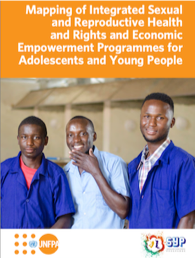
|
Mapping of Integrated Sexual and Reproductive Health and Rights and Economic Empowerment Programmes for Adolescents and Young People Systematic mapping of documented, existing initiatives and programmes that integrate/d sexual and reproductive health and rights (SRHR) in economic empowerment and/or asset-building and/or entrepreneurship frameworks/ programmes for young people. |
GBV and harmful practices including child marriage and FGM
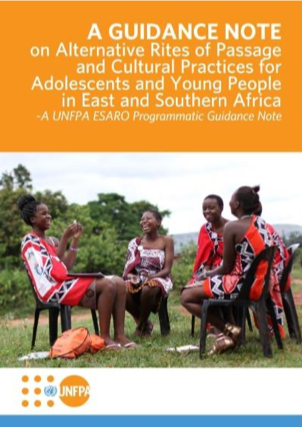
|
A Guidance Note on Alternative Rites of Passage and Cultural Practices for Adolescents and Young People in East and Southern Africa This guidance note describes the dominant adolescent rites of passage and initiation ceremonies in four countries in the Southern African region - Malawi, Eswatini, South Africa and Zambia. |
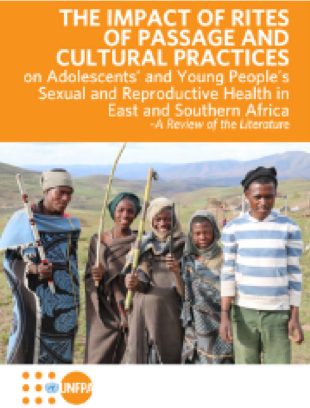
|
The Impact of Rites of Passage and Cultural Practices on Adolescents’ and Young People’s Sexual and Reproductive Health in East and Southern Africa UNFPA reviewed the existing literature relating to adolescent rites of passage and initiation ceremonies in four countries in Southern Africa, to assess the impacts of these rites on young people in those countries, and propose alternatives for those found to be harmful physically, socially or emotionally. |

|
Child Marriage and Environmental Crises: An Evidence Brief Child marriage is a violation of a girl’s human rights and can present challenges for her health and well-being across the life course. Climate change increases vulnerability and, as a result, can erode the ability of families and communities to ensure and uphold sexual and reproductive health and rights. |
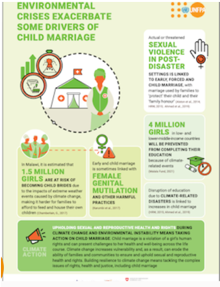
|
Environmental Crises Exacerbate Some Drivers of Child Marriage This infographic explains why upholding sexual and reproductive health and rights during environmental instability caused by climate change means taking action on child marriage. |
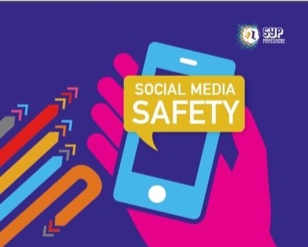
|
Social Media Safety Everything you post and share online creates a permanent public image of you. Every post is like a tattoo – it’s forever. This leaflet is a guide about how to stay safe while using social media – what to do and what not to do. |
Sexual and reproductive health and rights services including HIV
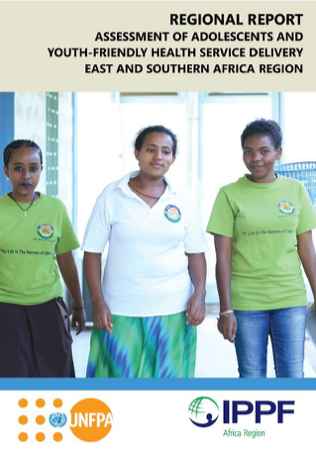
|
Regional Report: Assessment of Adolescents and Youth-Friendly Health Service Delivery: East and Southern Africa The Assessment of Adolescent and Youth-Friendly Health Services in the East and Southern Africa Region (2015-2017) was undertaken with the purpose of conducting a review of existing adolescent and youth-friendly health services policies, guidelines, protocols and standards, and assessing how they are implemented in 23 countries of the East and Southern Africa region. |
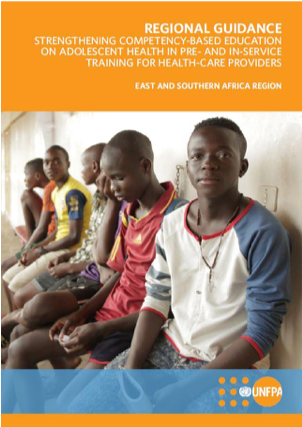
|
Regional Guidance: Strengthening Competency-Based Education on Adolescent Health in Pre- and In-Service Training for Health-Care Providers This guidance document offers a strategic framework and processes to strengthen competency-based pre- and in-service training on adolescent health for health-care providers, as a contribution to achieving universal health coverage for all adolescents and youth in the region. |
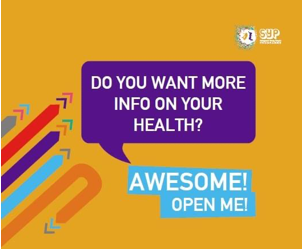
|
Youth-Friendly Health Services pamphlet Youth-friendly services are health-care services that meet the needs of young people, between the ages of 10-24 years old, like you! The staff that provide youth-friendly health services aren’t there to judge you. |

